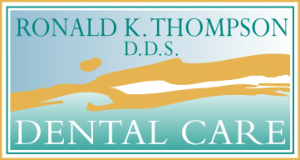Preventative care is critical to overall health. You can visit the doctor annually for physicals and bloodwork, but if you don’t visit the dentist regularly, you’re missing out on an essential component of health care.
Without proper dental care, many people wait until they have a problem with their teeth before visiting the dentist.
This is when problems become more complex and frequently require sedation dentistry to correct.
Defining the Terms in Sedation Dentistry
It is a medical phrase that refers to any procedure that induces relaxation in patients. Generally, the sedative techniques utilized in each field are the same.
Among these are general anesthesia, a form of minimal sedation that keeps the patient awake and alert, and deep sedation, which fully sleeps the patient.
Why Sedation is Necessary
Your dentist wants to put you in a coma as part of your dental treatment for a reason. Certain operations do not require sedation. It’s a safe and effective way to help you get through something unpleasant or painful.
You Might Injure Yourself Without Sedatives
Without anesthesia, your natural reaction is to jerk and pull away, which makes the dentist’s job more difficult and may possibly result in you injuring yourself.
The Basics of Sedation
There are numerous types of sedation dentistry, and your dentist will discuss them with you during your consultation. The amount of sedation you need is based on a number of factors, including your medical history and the dental procedures you are having done.
To give sedation, a dentist needs a lot of extra training. It’s only used when a topical anesthetic doesn’t work.
Sedation: Unconscious vs. Conscious
A great deal of people’s dread of sedation stems from stories and myths they’ve heard. Let’s look at the reasons and circumstances why each type of dental sedation is used.
Local Anesthesia
Dentists begin by administering a local anesthetic. This is used when people have dental problems because of cavities, crown placement or modification, root planing and scaling, root canal and scaling, or root canal and scaling.
A local anesthetic maintains your consciousness and awareness. It numbs the areas that need work. The numbness often lasts between a half and an hour.
Topical or Injectable Applications
This is used as a gel on the gums or is injected into the gum region. As soon as you experience numbness, it’s time to begin the dental work on your list.
General Anesthesia
General anesthesia may be utilized if further pain control is required or if the patient is fearful of the dental operation that will be performed. If you use this kind of sedation dentistry, you will be able to go to sleep and feel completely at ease.
They typically employ this type of anesthesia while performing a lengthy treatment or performing dental work that requires extreme caution. It is easier to perform difficult dental procedures on a patient who is entirely unconscious throughout the process.
This type of sedation is occasionally used for other purposes as well. When your anxiety is so intense that you are unable to remain still throughout a cavity sealant procedure, general anesthesia may help.
Types of General Anesthesia
The majority of general anesthetics are administered by dentists who are trained in the use of IV sedation or a face mask. The anesthesia is maintained at a constant dose throughout the surgery. When you fall asleep, you’ll be able to relax in the dentist’s chair and breathe through a tube.
If you require the removal of your wisdom teeth or of a tooth, you may be given general anesthesia.
Is a General Anesthetic Right For You?
Certain individuals, such as those with neurological issues or acid reflux, are unable to receive this type of sedation. If you’ve ever experienced an allergic reaction to anesthesia, inform your dentist so they can ensure your sedation is appropriate for you.
Nitrous Oxide Sedation
On the other hand, nitrous oxide is an inhaled sedative. It’s also referred to as “laughing gas,” and it can help you relax if you’re terrified of needles or prefer not to deal with them.
Through the mask, you inhale oxygen diluted with nitrous oxide. The balance of gases is monitored during the treatment to ensure that you do not awaken. When the medication wears off or you get sick, the dentist is aware of the signs and can give you more laughing gas.
The majority of people are unaware they have undergone the operation until it is completed. They may fall asleep or be unable to rouse themselves after inhaling the laughing gas. It is ineffective as long as it is not inhaled.
Oral Sedation
Oral sedatives may be used if you are not required to be asleep or if you are fearful about the surgery. With these medications, a dentist can work on your teeth for hours. For that length of time, you will be able to maintain a moderate level of seclusion.
The majority of dentists use Halcion, a medication that functions similarly to Valium. You’ll take your oral medication one hour before your treatment to help you feel better. Then you’ll experience total relaxation and drowsiness. In the meantime, it will be possible to respond to queries and follow directions in the meantime.
Oral sedatives can assist you in relaxing and relieving pain to a degree. Individuals considering dental work should consider using oral conscious sedation. It is beneficial for procedures such as root canals. When used in place of laughing gas, this does not soon wear off. You may require someone to drive you home following your dentist’s appointment.
IV Sedation
IV sedation is the only method of sedation that may induce a state of deep slumber from which even the most violent acts will not awaken you. It contains the same medications as oral sedation, but they are also administered by IV drip. This is insufficient if you wish to remain unconscious in order to avoid dental anxiety or have a weak gag reflex. Moderate sedation will not suffice.
After that, the dentist will keep an eye on your vital signs and adjust your medicine as needed.
Schedule an Appointment to Discuss Your Options
Although sedation dentistry can be frightening, do not let this deter you from having your teeth treated. Your dentist can discuss the many types of sedation available to you.
Bear in mind that whether you require moderate oral sedation, deep sedation, or something else is determined by a variety of factors. “Worst-case scenario” scenarios can get into your head when they’re not needed, so be careful.
You are welcome to bring a list of questions and concerns to the meeting. Others have as well!
Our Dentistry Procedures Are Safe and Approved
It is reasonable to assume that any drug prescribed to you has been approved by the Food and Drug Administration and the American Dental Association. The type you get will depend on your health, the treatment you’re having, and your insurance.
We want to make sure that you can take care of your dental needs in a safe and comfortable way.
Because we care about your safety and comfort, we aim to assist you in the safest manner possible when it comes to dental treatment. It’s time to schedule an appointment for sedation dentistry, preventative care, or anything else.





